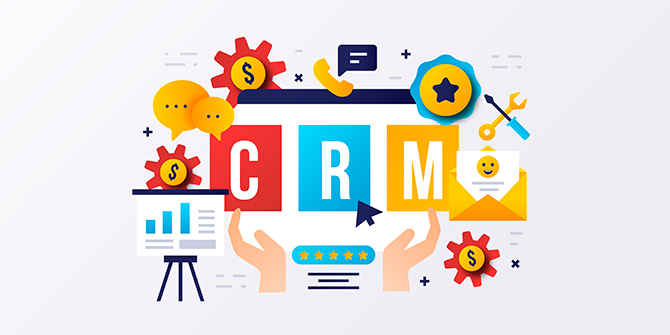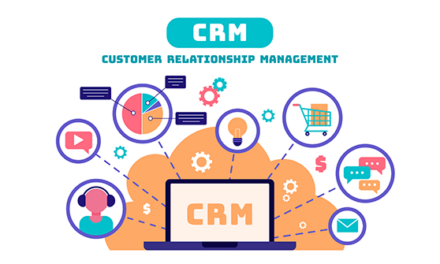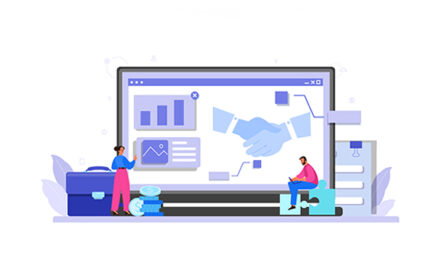Key Takeaways
- Optimize customer data management for better organization and efficient data utilization.
- Utilize automation and workflow optimization for time-saving and better sales process.
- Integrate with other systems and invest in reporting and analytics for better decision making.
Customer relationship management is more important than ever in today’s competitive business landscape.
Building strong and lasting relationships with your prospects is essential for success, whether you’re a small business owner or a large corporation.
That’s where CRM platforms come in. A CRM is a software that helps businesses manage customer interactions, streamline sales processes, and improve customer satisfaction.
However, simply having a CRM platform isn’t enough. You need to take a strategic approach to optimize your CRM platform and get the most out of it.
This article will explore 12 stellar ways to optimize your CRM platform, from cleaning up your data to utilizing analytics and integrations.
Implementing these best practices can improve efficiency, enhance communication, and gain valuable customer insights.
So, to take your customer relationship management to the next level, read on to discover 12 stellar ways to optimize your CRM platform.
Ways to transform your business using CRM optimization tips

Evaluate your current CRM system
The first step in optimizing your CRM platform is to evaluate your current system. Next, review your CRM system features and capabilities, identify areas for improvement, and establish goals for your optimized CRM system.
This evaluation will help you identify what works and what doesn’t and provide a roadmap for improvement.
Clean up your CRM data
Clean data is the foundation of a successful CRM platform. Duplicate or inaccurate data can lead to confusion and errors, making it difficult to effectively manage customer relationships.
Regular data maintenance and updates are essential, as is developing a data entry protocol for consistent and accurate data entry.
Additionally, establish data hygiene practices to encourage CRM use and adoption, such as setting up automatic data validation and alerts for incorrect data entry.
Streamline your sales processes
Streamlining your sales processes is essential for optimizing your CRM platform. Map out your sales processes, identify inefficiencies, and automate processes where possible.
Create templates for standard sales communication and implement lead routing and follow-up workflows to improve sales productivity and increase efficiency.
Enhance customer communication
Effective customer communication is key to building strong customer relationship management. Review your customer communication channels, identify opportunities for improvement, and personalize communication to improve engagement.
Automation can also help ensure consistent and timely follow-up, while customer segmentation allows for targeted communication.
Implement a lead scoring system
A lead scoring system allows you to prioritize leads based on their conversion likelihood. Develop a lead scoring system based on your criteria and methodology, and use it to prioritize leads.
Lead scoring reports provide insights into lead behavior and help you optimize your lead generation strategies.
Utilize analytics
Analytics provide valuable insights into customer behavior and can help you make data-driven decisions. Identify and track relevant metrics, use analytics to inform decision-making, and set up analytics dashboards for real-time data review.
Regular analytics review and analysis can help you optimize your CRM platform for maximum effectiveness.
Integrate with other tools
Integrating your CRM software with other tools, such as marketing automation and customer service platform, can streamline processes and improve efficiency.
Evaluate your existing tools and systems, identify opportunities for integration, and establish API connections for seamless data transfer.
Customize your CRM platform
Customizing your CRM platform as per your business needs improves usability and makes it more effective.
Tailor fields, forms, and workflows to your business requirements, create user groups with customized permissions, and set up automatic alerts and notifications.
Improve data security
Protecting customer data is essential for building trust and maintaining regulatory compliance. Implement security measures such as regular review and updating of security protocols, password policies, and access controls.
Ensure compliance with relevant data privacy regulations, such as GDPR and CCPA.
Invest in training and education
Ongoing training and education are essential for optimizing your CRM platform. Provide training to CRM users, stay up-to-date with new CRM features and updates, and create user manuals and guides for CRM usage.
Offering advanced training for power users ensures that your team is equipped to get the most out of your CRM platform.
Consider a CRM optimization consultant
Working with a CRM optimization consultant can provide valuable insights and expertise in optimizing your CRM platform.
Consultants can objectively evaluate your current CRM system, identify areas for improvement, and provide guidance on best practices and implementation strategies.
Additionally, consultants can offer training and support to ensure your team is fully equipped to utilize your optimized CRM platform.
Continuously review and optimize
The process of improving your CRM platform is ongoing. Review and analyze data frequently, get user input, and pinpoint areas that could use improvement.
Implement changes as well as updates to improve efficiency and continue to evaluate and optimize your CRM platform for maximum results.
Benefits Of using an optimized CRM

Increased efficiency
An optimized CRM can help streamline and automate many tasks, reducing the amount of time spent on manual data entry and administrative work.
Improved customer data management
An optimized CRM can help organize and manage customer data more effectively, enabling businesses to make data-driven decisions and provide better customer service.
Better customer engagement
An optimized CRM can help businesses tailor their communications and metaverse marketing efforts to individual customers, leading to better engagement and increased loyalty.
Enhanced sales performance
An optimized CRM can help businesses identify and prioritize leads more effectively, resulting in improved sales performance and revenue growth.
Improved collaboration
An optimized CRM can facilitate better collaboration and communication between sales, marketing, and customer service teams, resulting in a more cohesive approach to customer engagement.
Enhanced reporting and analytics
An optimized CRM can provide more accurate and comprehensive reporting and analytics, enabling businesses to identify trends and opportunities more effectively and make more informed decisions.
Better user adoption
An optimized CRM can provide a better user experience, making it more likely that employees will adopt and use the platform effectively.
Conclusion
In conclusion, optimizing your CRM platform is essential for effective customer relationship management.
By cleaning up your data, streamlining your sales processes, enhancing customer communication, and utilizing analytics and integrations, you can improve efficiency and effectiveness.
Additionally, investing in training and education, considering a CRM optimization consultant, and continuously reviewing and optimizing your CRM platform ensure ongoing success.




